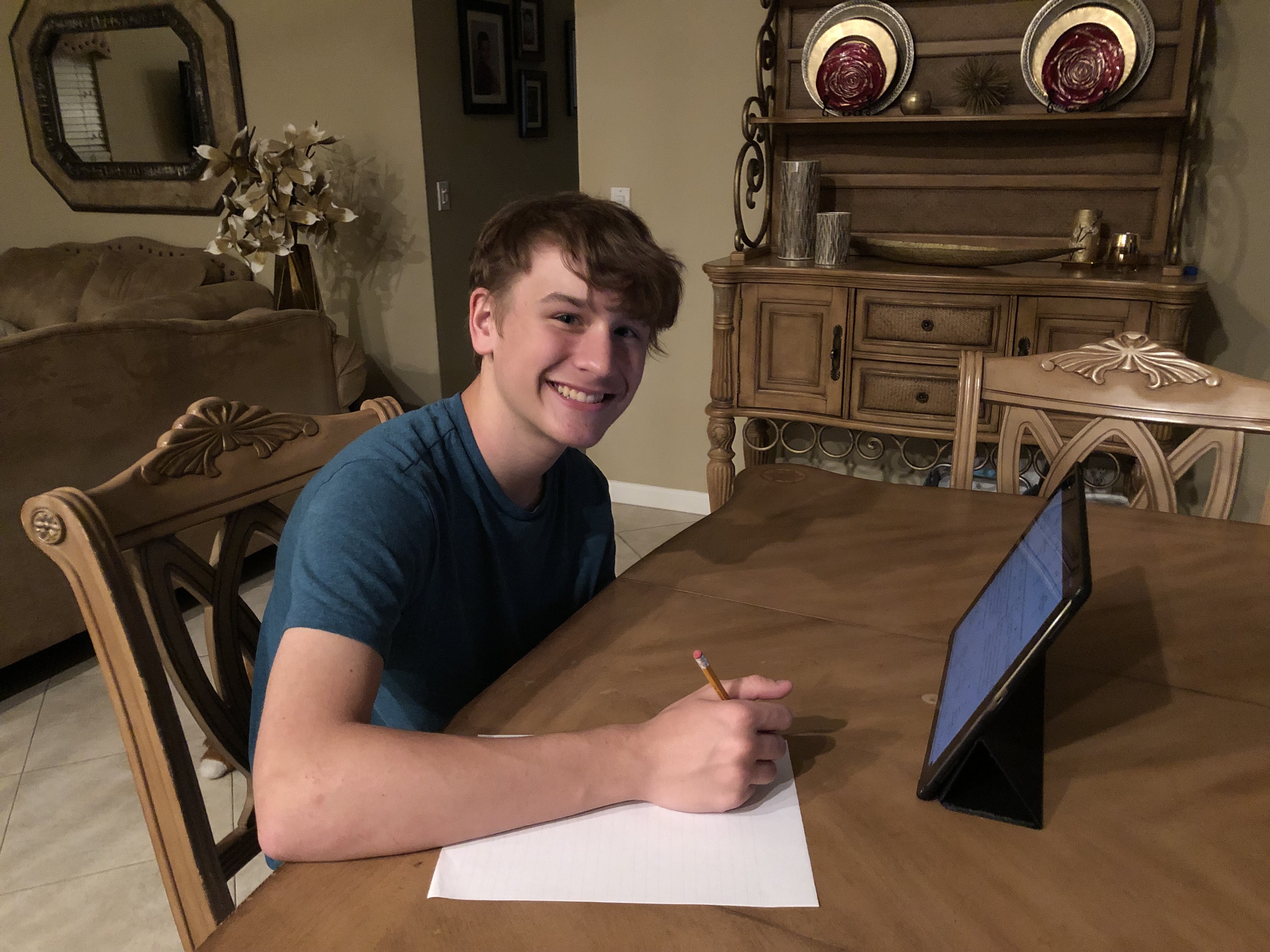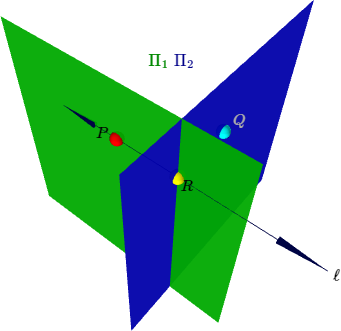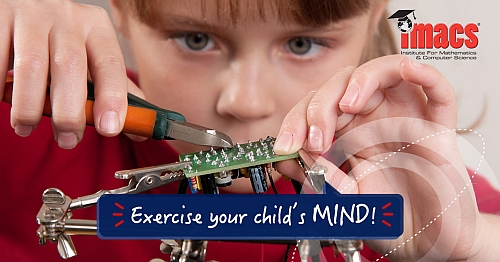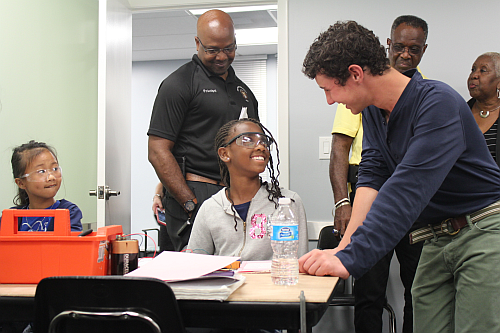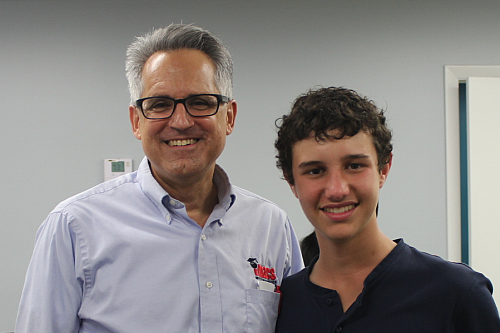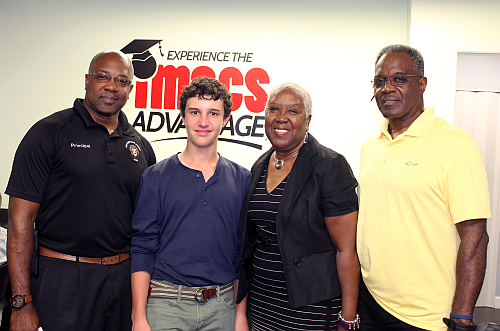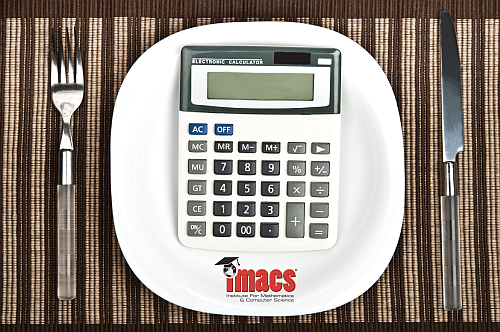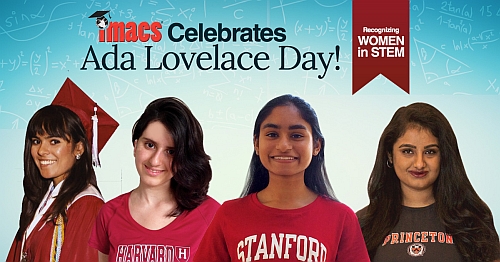
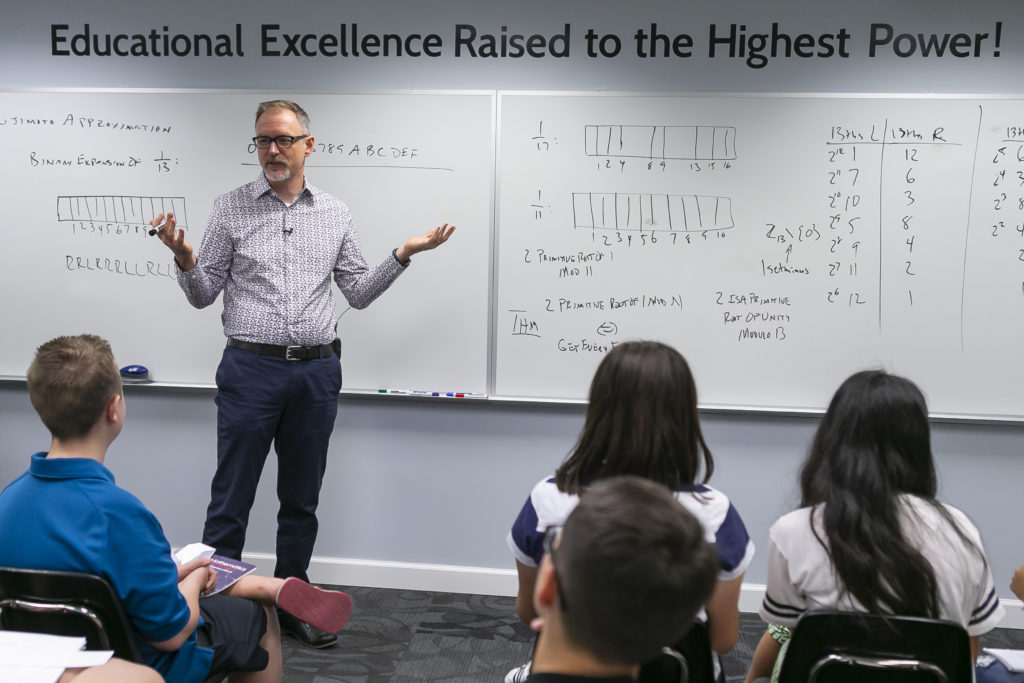
This press release was originally published in the BCPS Newsroom. Scroll down for videos of both lectures.
Fort Lauderdale, Fla., June 10, 2019 — Kevin Knudson, professor and chair of the University of Florida (UF) Department of Mathematics and UF Distinguished Teaching Scholar, recently presented two mathematics lectures to sixth through ninth grade students and graduates of Broward County Public Schools (BCPS) EMF Math program. More than 100 students and parents attended the special event, hosted by the Institute for Mathematics and Computer Science.
EMF Math or Elements of Mathematics: Foundations, is an advanced online curriculum for students in grades six through eight.
Samantha Carozzi, an eighth-grade student studying EMF Math at Pioneer Middle School, raved about how much she enjoyed Professor Knudson’s talk. “I learned so many interesting new ideas in his presentation and how they connect in unexpected ways,” said Carozzi.
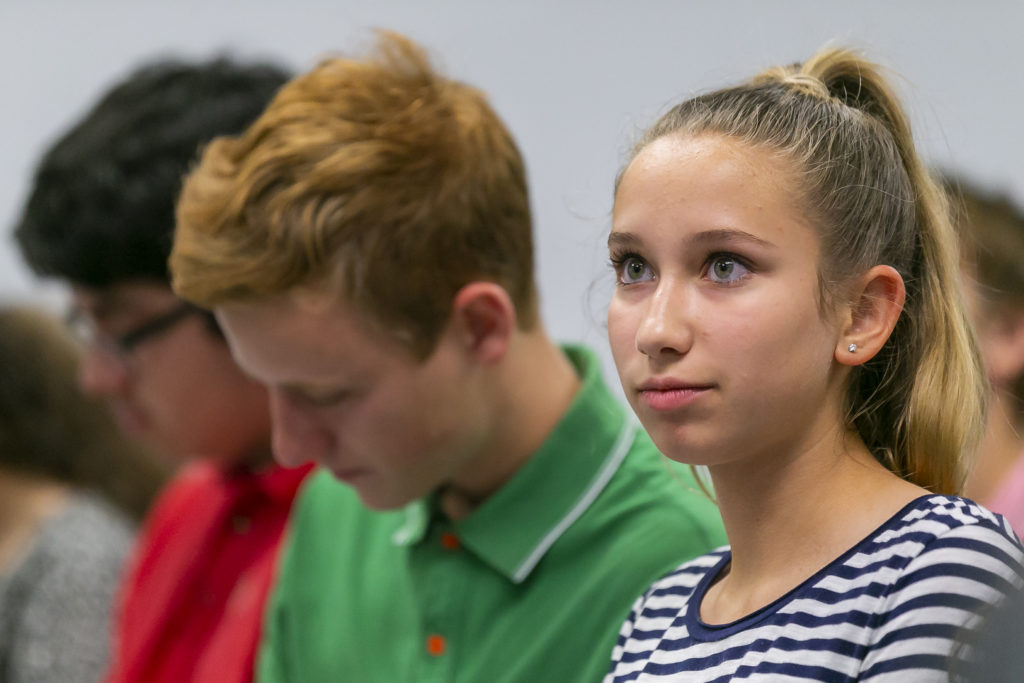
Professor Knudson became interested in BCPS EMF Math students after learning about the unusually advanced math courses students take in middle school. The District launched the program in 2015 to give top students the opportunity to learn university-level mathematics, such as group theory, while also covering pre-algebra through precalculus.
“The mathematical maturity of these students is astonishing.” — Kevin Knudson, Professor of Mathematics
“The mathematical maturity of these students is astonishing,” said Professor Knudson. “While only in middle school they have a grasp of abstract topics that most undergraduates do not see until their second or third year at the university. Some of them will no doubt go on to be professional mathematicians, but all of them stand to benefit from the advanced mathematical reasoning skills they are learning no matter what field they choose as adults.”
“BCPS is to be commended for their commitment to these talented young men and women, and the EMF staff should be very proud of the work they are doing to help these kids reach their full potential,” added Knudson.
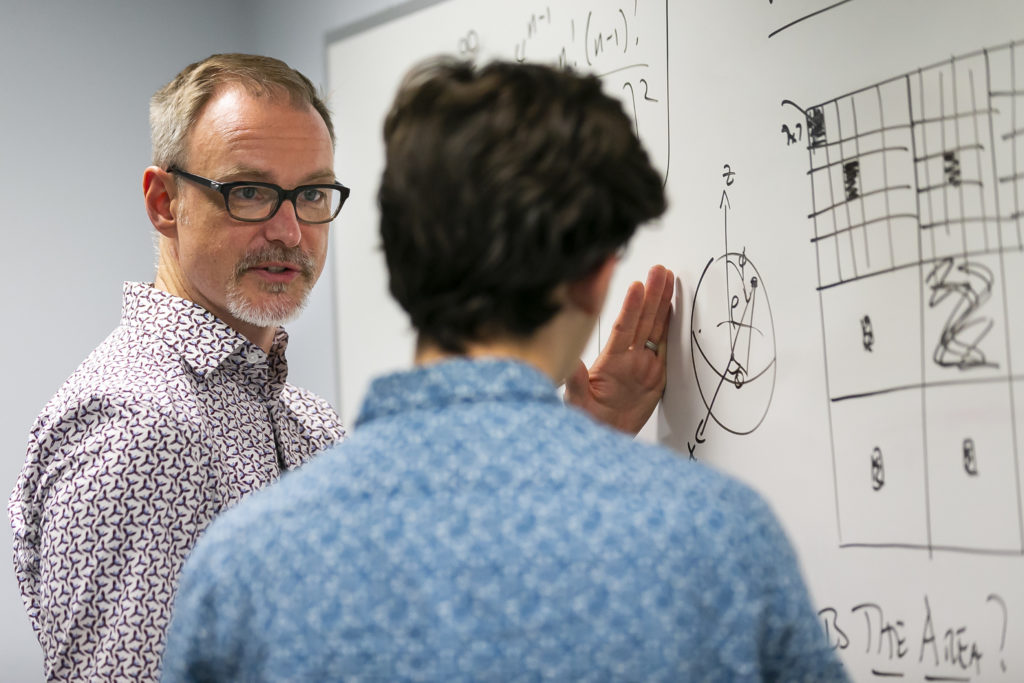
Guy Barmoha, director of Secondary Learning at BCPS, is thrilled to see the District’s EMF Math students making their mark on the world. “Our students are getting an amazing math education, which led to a world-class university professor wanting to meet them,” said Barmoha. “I’m proud to be part of a District that provides these kinds of learning opportunities.”
EMF Math graduates who enroll in a District high school and pass UF’s math placement exam, are allowed to take calculus courses through UF’s Online Dual Enrollment (DE) program as ninth-graders, two years earlier than usual. Students may take up to eight UF DE courses throughout high school.
Maximilliano Novak de Vries, an EMF Math graduate who is now a freshman at Cooper City High School, plans to complete all of his college math requirements by the end of his junior year of high school. “The head start I get from UF DE will allow me to focus on engineering when I am in college,” said Novak de Vries. “My goal is reachable because I participated in EMF Math.”
While Professor Knudson taught students about a variety of topics — the Fujimoto Approximation, “binary” decimals, the Wallis Sieve — parents attended their own presentation by Litza Echeverria Rubio from UF’s Online Dual Enrollment Department. Echeverria Rubio guided parents through the dual enrollment process at UF and answered general questions about the University’s admissions process.
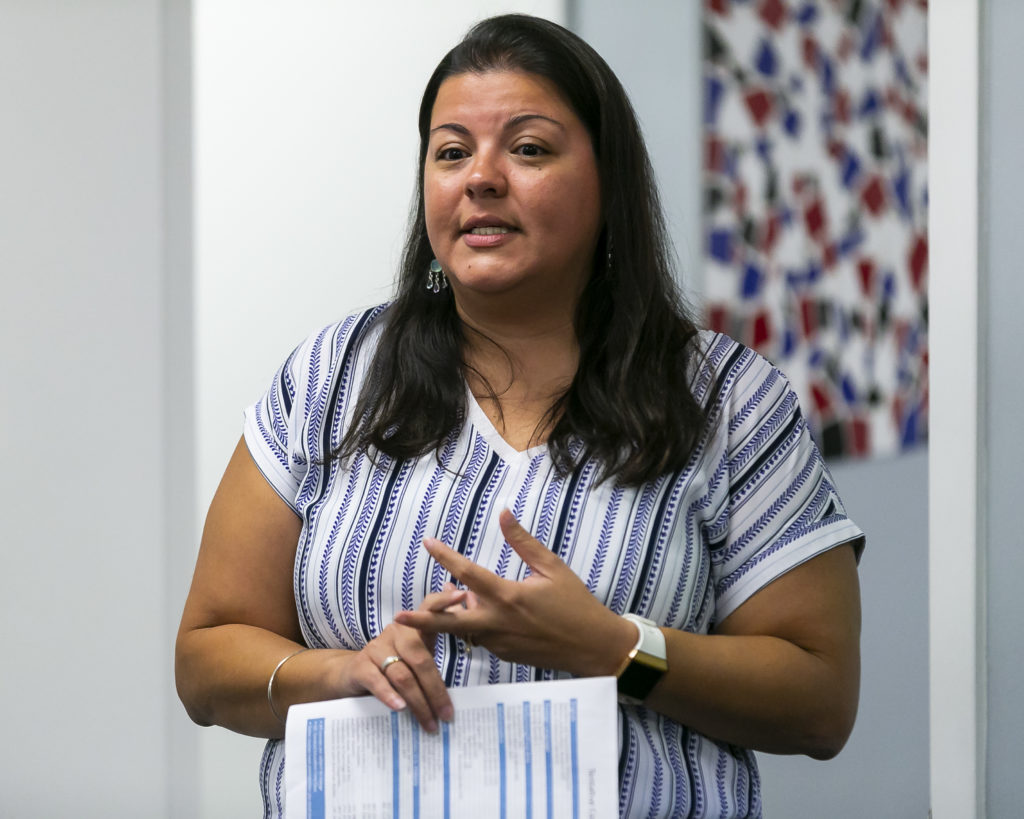
“The presentation on UF’s dual enrollment program for EMF Math students came at the perfect time and addressed all of my questions and concerns,” said parent Cathy Ingemanson. “I am thankful to BCPS, EMF Math and UF for providing this amazing opportunity and supporting our children.”
Iain Ferguson, director of EMF Math, has watched the program grow as more public school districts seek cost-effective ways to shift the emphasis from rote memorization to creative problem-solving skills. “Students today need a math education that prepares them to think flexibly and take on problems in a wide variety of fields, even ones that don’t yet exist,” explained Ferguson. “That’s exactly what we designed EMF Math to do.”
For additional information about EMF Math or other great mathematics instruction opportunities that BCPS provides, contact Ann-Marie Evans, math curriculum supervisor, via email at ann-marie.evans@browardschools.com or call 754-321-2119.
Teachers and administrators not in Broward County Public Schools who wish to gain free access for their students to the first EMF Math course may register at https://www.EMFmath.com/schools.
ABOUT BROWARD COUNTY PUBLIC SCHOOLS
“Committed to educating all students to reach their highest potential.”
Broward County Public Schools (BCPS) is the sixth-largest school district in the nation and the second-largest in the state of Florida. BCPS is Florida’s first fully accredited school system since 1962. BCPS has more than 271,500 students and approximately 175,000 adult students in 234 schools, centers and technical colleges, and 88 charter schools. BCPS serves a diverse student population, with students representing 204 different countries and 191 different languages. Connect with BCPS: visit the website at browardschools.com, follow BCPS on Twitter @browardschools and Facebook at facebook.com/browardschools, and download the free BCPS mobile app.
ABOUT INSTITUTE FOR MATHEMATICS AND COMPUTER SCIENCE
The Institute for Mathematics and Computer Science (IMACS) is an independent teaching and educational research institute with centers in South Florida, North Carolina, Missouri, and Connecticut. Over 4,500 students from across the US and around the world attend local IMACS classes or study its online courses. For more information, visit imacs.org or EMFmath.com. Connect with IMACS and EMF Math on Facebook at facebook.com/eimacs and facebook.com/emfmath.
Notes
Photos by Matias Ocner.
For more by Professor Knudson, including the My Favorite Theorem podcast, visit kpknudson.com.
The UF Dual Enrollment program helps eligible accelerated high school students access coursework at the University of Florida from their home district.
Commentary by EMF Graduates
EMF Math vs. The Traditional Approach to Learning Mathematics by Cole Travers
Gifted EMF Alumna Shares Advice for Current & Future Students by Isabella Yeung
EMF Insights by Olivia
PLANTATION, Fla., Mar. 6, 2019 — Representatives from the University of Florida (UF) and Florida Atlantic University (FAU) met with more than 150 middle school students and parents in Broward County Public Schools (BCPS) last week to describe the exciting opportunities they are offering to graduates of Broward’s Elements of Mathematics: Foundations (EMF Math) program.

EMF Math is an online curriculum that teaches pre-algebra through precalculus plus advanced topics in modern mathematics to students in grades 6-8. BCPS, the sixth largest public school district in the US, is in its fourth year of offering the program to bright students across a diverse mix of 31 middle schools. Schools and districts interested in licensing EMF Math should contact the Institute for Mathematics and Computer Science (IMACS) at https://www.EMFmath.com/schools.
Many of the Broward’s EMF Math graduates are excelling as ninth graders in either Calculus I/II at UF through its dual enrollment program or in Advanced Placement Calculus at their local public high schools.
Brandon Case, UF’s Coordinator for Curriculum and Special Programs, said that EMF Math gives BCPS students early access to UF’s dual enrollment program. “They are programs primarily for [high school] juniors and seniors,” noted Case, “But we’ve worked with the district, and EMF students are allowed to participate for one math course per term as of their freshman year.”
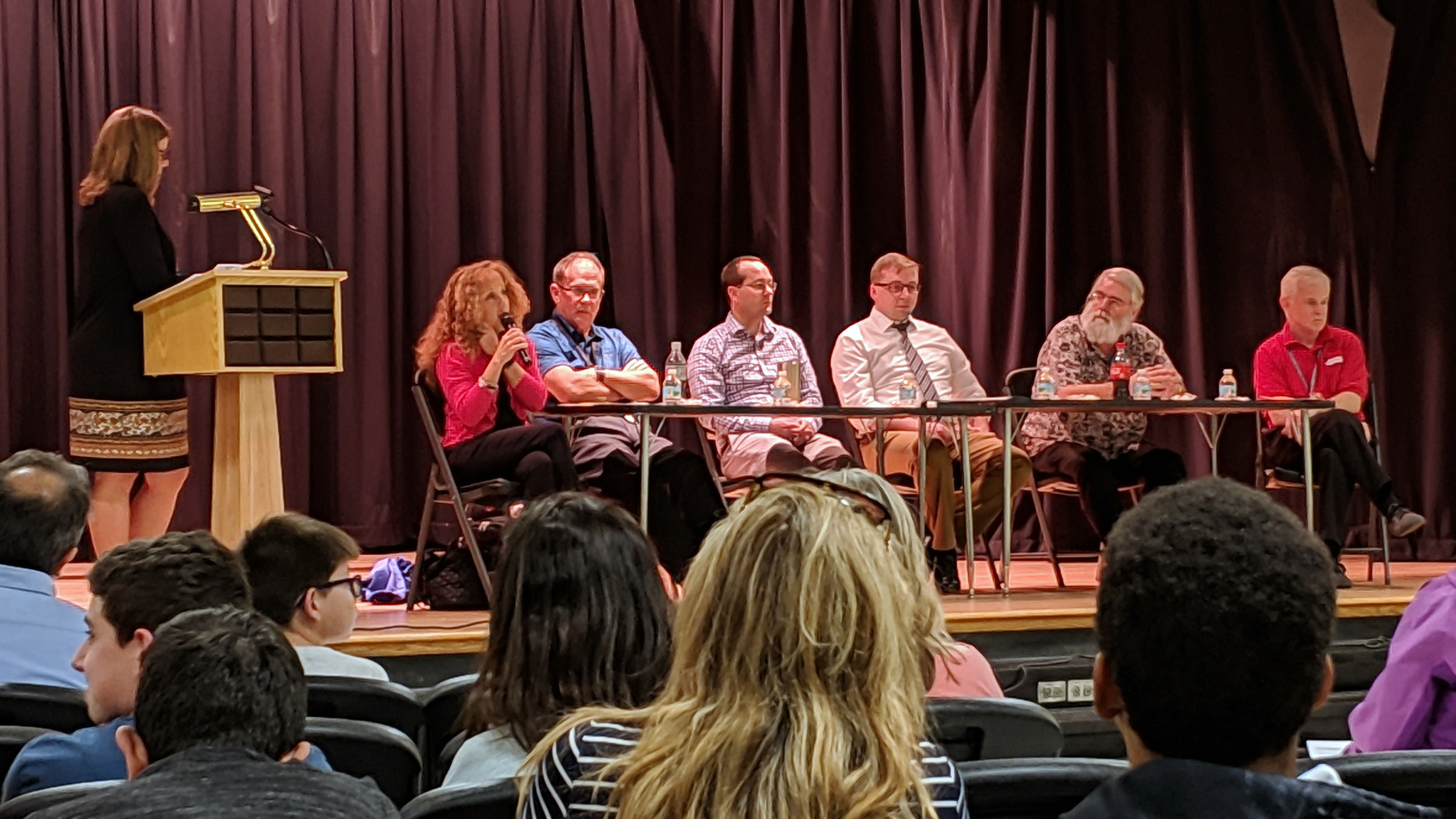
L to R: Shari Stupp, BCPS; Shari Bush, BCPS; Bob McKinney, BCPS; Andreas VanDenend, UF; Brandon Case, UF; Dr. Stephen Locke, FAU; Iain Ferguson, EMF Math.
According to Case, the first cohort of EMF Math graduates taking UF Calculus I/II are, broadly speaking, doing quite well. Ninth grader and EMF Math graduate Zachary Weissman completed UF Calculus I with an outstanding grade of 106%. “I absolutely loved Calculus I, and I am enjoying Calculus II,” said Weissman. “I believe this program will be extremely beneficial for the EMF eighth graders, and I strongly recommend it.”
Andreas VanDenend, Assistant Director for UF’s Online Dual Enrollment Program, described the support system that UF provides to EMF Math graduates. “At the University of Florida, we do a whole lot for the students to make sure they are not drifting around in UF systems,” he assured parents. “We make sure students have their right login, their UF identification number, all that they’ll need to get started on the first day of class.”
Professor Stephen Locke, Associate Chairman of the Department of Mathematical Sciences at FAU, noted that EMF graduates can take dual enrollment classes during the summer at FAU. Some parents thought this might be an attractive option for students who want to take classes that UF doesn’t offer online or who would like to have a local professor.
Parents in attendance were mainly seeking advice on navigating the uncertain road of high school and college coursework. Many of them found the presentations to be very informative and appreciated that these universities were already taking an interest in their middle school children.
IMACS is currently offering schools and districts the opportunity to provide the first EMF Math course to an unlimited number of students at no cost. Teachers and administrators may request access by registering at https://www.EMFmath.com/schools.
About IMACS
The Institute for Mathematics and Computer Science is an independent teaching and educational research institute with centers in South Florida, North Carolina, Missouri and Connecticut. Over 4,500 students from across the US and around the world attend local IMACS classes or study its online courses. For more information, visit https://www.imacs.org/.
Cole Travers completed the EMF Math program during grades 6-8 through his public school district. He wrote the following guest blog post in which he compares EMF with a traditional high school math class and explains why EMF was excellent preparation for college.
Throughout my three years in EMF, I got to learn mathematics in the way that a mathematician understands it. Now that I am in 9th grade and in a traditional math class, I can compare this experience to my EMF experience. The main difference is that EMF focused on the why of math, while traditional classes focus on the how of math.
In EMF, I was not just given statements of mathematical laws and properties and told to use them. EMF always made those formulas available, even during the major tests at the end of sections. Instead, I actually had to prove why they are true using logic. Proofs challenged my perspective on math and while they made math many times more difficult, they also made it many times more enjoyable and satisfying.
My EMF experience made me want to keep learning the “why” behind the formulas and graphs that I see now in my traditional class, but, unfortunately, I don’t get to do that. To do well, I simply memorize a few formulas or graphs and apply them on homework, periodic quizzes, and unit tests. I can forget them as soon as we’re done with the unit, because they never come up again.
At first, the more challenging part of a traditional class was doing a lot of calculations quickly. In EMF, quizzes and tests were untimed due to their difficulty and the unimportance of speed in true mathematics. Now I have one class period, or around 45 minutes, to finish a quiz or a test. At the beginning of the semester, using formulas two dozen times in 45 minutes was not something I was used to. But after a short time and a little practice, it got easier. I also now see that going the other direction — understanding concepts deeply when you’ve been taught to be fast — is much harder.
Because I only have to memorize and apply formulas in my traditional class, the advanced skills that I learned in EMF — digging deep into a concept, solving problems creatively, and writing proofs — are not directly applicable right now. EMF certainly does not hurt in any way, and it will help in college math courses because they are more about actually understanding math. Plus the advanced material in EMF just made it really interesting. I probably would have been completely bored in math all through middle school if I had not been in EMF.
Another difference is that in EMF, the ideas were interconnected and made sense as part of a bigger picture. As I learned new concepts in EMF, I also learned how they linked back to previous concepts. In order to solve EMF’s most complex problems, I usually had to bring old and new ideas together and come up with a new way to apply them.
On a related point, how I learned to think in EMF actually helps me in classes other than math. The way EMF taught me to delve deeper and to layer new knowledge onto prior knowledge enabled me to do better than many of my peers in Biology Honors, for example. As with EMF, this is quite a challenging class and the material builds on itself. EMF helped me in ways bigger than mathematics by teaching me how to learn difficult subjects. I think I will be much better prepared to succeed in college because of EMF.
Current EMF students should feel confident that they will do well in traditional high school math classes, even though these classes are very different from EMF. Understanding the material in high school math classes isn’t hard at all. Students just have to use a different approach, mainly memorization and application. I would encourage middle school students to enjoy EMF as much as they can because it is definitely the most interesting way to learn math that I have ever experienced.
More Commentary by EMF Graduates
EMF Reflections by Alumna Isabella Yeung
EMF Insights by Olivia
EMF Math is an online curriculum designed for talented middle school students. EMF covers Pre-Algebra, Algebra I, Algebra II, Geometry and Precalculus, plus advanced topics in modern mathematics. Would you like your public or private school to offer EMF? Share EMF school licensing information with your school’s math curriculum specialist. For EMF news, like EMF Math at facebook.com/emfmath.
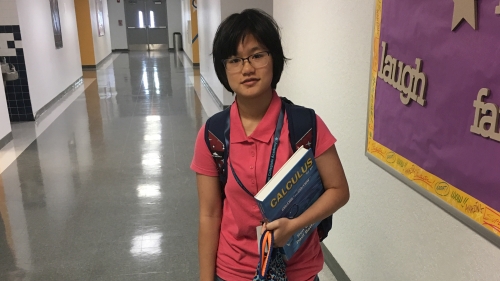
Isabella Yeung completed the EMF Math program during grades 6-8 through her public school district. She wrote the following guest blog post to share her memories of the program and advice for current and future EMF students.
EMF truly is an amazing program. (No, I’m not saying this just because; I mean it with all my heart.) Looking back at the last three years, I am grateful for the opportunity to have participated in EMF. Unquestionably, I have grown from when I was a 6th grader just starting EMF. This rigorous program has expanded my knowledge about the world of mathematics, stimulated my brain cells, boosted my confidence level, and let me grow as a student.
In fact, because of EMF and the support of my teachers and EMF professors, I scored 100% on the University of Florida Dual Enrollment math placement exam on my first try. Thanks to my score, I will be taking UF’s Calculus 1 and Analytical Geometry course as a 9th grader.
EMF has played a crucial role in my academic life and in my social life as well; I have created numerous everlasting memories with my best friend who was also in EMF at the same school. (As EMF students, we sat in classrooms with non-EMF students doing the usual accelerated math.) My friend and I gave each other encouragement when EMF exercises were difficult, and we amused each other with our imaginations during the regular classroom lessons.
There is definitely a noticeable difference between EMF students and those who don’t take EMF. My math teachers certainly noticed it. Whenever teachers would give my best friend and me a math test along with the rest of their class, we would score the highest in the class even though we didn't pay much attention to the regular lessons and barely studied for these tests.
In 7th grade when my friend and I were in the Algebra 2 Honors classroom, we would finish our EMF work and then quietly make up crazy stories and comics to keep from getting bored by the regular lesson. We both got the top scores of our class on the end-of-course exam because of EMF. He got a near-perfect score, while I got a perfect score. The experience in 8th grade was similar. When the teacher would warn us about a Geometry quiz happening the next day, my friend and I would usually just skim through the regular textbook chapter for 10 minutes that night and obtain the highest marks in the class, either a 100% or just one question off.
Thus, if you stay on schedule with EMF, the content definitely prepares you for school math finals or state math exams. But mostly, it’s the way of critical thinking and logic skills that EMF instilled in me that has ensured my success on the tests and exams.
Let me be frank; this course is not for the faint of heart. Sure, you might find it challenging, frustrating, and downright annoying at times, but this is all part of the growing and learning process. This is a program that forces you to look at concepts from multiple perspectives and drives you to think outside the box. It seriously takes your processing and logic skills to the next level! Because of this, my analytical skills have definitely been refined to a sharp point.
The three most important traits you need to possess in order to succeed in EMF are resolve, perseverance, and dedication. If you have these three things, you will undoubtedly make it through the program and earn the title of “EMF Graduate.” No matter how puzzling and infuriating a problem might seem, you must not give up until you have solved it. The satisfaction you get when you have accurately unraveled a seemingly impossible exercise is unparalleled. EMF requires that you work diligently and prepares you mentally for most, if not all, obstacles you will face in high school and beyond. If you do end up procrastinating on EMF, you will have to work very hard to catch up. (I know this from experience, having spent some of my school holidays to get back on track.)
As a word of advice to future and current EMF students: Know that there are no shortcuts in EMF. Work hard. In the end, the rewards you reap will surely be worth it. I have not and absolutely will not ever regret partaking in EMF. It has paved a plethora of new roads, ones that I will readily embark upon. I encourage you all to march on and face EMF head-on. Best of luck to all!
More Commentary by EMF Graduates
EMF Math vs. The Traditional Approach to Learning Mathematics by Cole Travers
EMF Insights by Olivia
The Institute for Mathematics and Computer Science (IMACS) is thrilled to announce that the Elements of Mathematics: Foundations (EMF) online program for talented middle school students is now complete with the release of the 18th and final EMF course, Precalculus Coda.
Precalculus Coda brings together topics from earlier EMF courses and expands on them with an extensive study of vectors in the real number plane and space, linear transformations (including orthogonal mappings), and matrices and their application in solving systems of equations.
Upon successful completion of the EMF program, students will have covered all national and state math standards for pre-algebra through precalculus but from an entirely modern mathematical approach. In addition, they will have enjoyed thorough introductions to college-level topics such as Abstract Algebra, Logic, Set Theory, Number Theory and Topology, and be well-prepared to excel in a college-level Calculus course.
Why Modern Mathematics
Mathematically talented students typically master school math with little effort. As a result, they tend to become bored with and disengaged from math if limited to traditional curriclum. They may also fail to develop the mental resiliency and study skills that come with having to work hard at math problems designed for their ability level.
The EMF curriculum is designed specifically to engage young, gifted thinkers in ways typically reserved for university math majors. It is useful to distinguish the two ways in which EMF is college-level: (1) the sophisticated use of logic and reasoning via proofs, and (2) the introduction of modern areas of mathematics such as Topology.
EMF incorporates all the concepts from a traditional curriculum but uses a logic and proof-based approach not usually entrusted to students until college. Talented middle school students who are intellectually mature and motivated can benefit from this more sophisticated approach; it fosters the development of creative thinking skills that are not easily replaced by computer processing power as algebraic manipulation skills already have. In other words, EMF prepares students with skills for the future, not skills of the past.
EMF's incorporation of exciting topics in modern mathematics—topics ignored by traditional school math—makes it far more interesting and intellectually engaging. These topics represent areas of active research as opposed to traditional school math subjects that were understood completely by the late 17th century. The idea of cutting off a child’s education in literature, history or science at the 17th century is ludicrous. The same applies to mathematics.
Access Matters
For children in many parts of the US and around the world, EMF now fulfills the promise of opening up access to a comprehensive, unified, proof-based approach to modern mathematics. IMACS certainly believes in the value of talented and dedicated teachers, but we also believe that lack of access to such teachers has unfairly limited for too many bright students the right to be challenged at their ability level on the way to achieving their full potential in mathematics. We aim to change that with EMF.
Course 1 < $20
In celebration of EMF's completion, tuition for the first course has been dropped to $19.95 (regularly $59.95) for a limited time. Through August 31, 2018, new families save 67% on the first EMF course or 25% on a bundle of all 18 courses. Visit EMFmath.com to learn more and enroll.
EMF in Schools
Did you know that numerous districts, schools and after-school programs license EMF? In fact, the first cohort of EMF students in Broward County Public Schools, Florida completed the program last year. As a result, many of them will be enrolling in Calculus as 9th graders this fall. If you would like to see EMF offered in your school, share the EMFmath.com/schools website with the relevant decision-makers in your district.
The following is an excerpt from Geometry: Incidence and Transformations, the first of three Geometry courses in the self-paced Elements of Mathematics: Foundations (EMF) series. EMF covers Pre-Algebra through Precalculus, plus several university-level topics, with the depth and sophisitication needed to challenge and mathematically talented children. Limited Time Offer: The first EMF course is available at 25% off regular tuition for students who enroll on or before October 31, 2017. Learn more at www.EMFmath.com.
In this course and the next our main focus is on Euclidean geometry. As you have undoubtedly noticed, in the preceding courses we have quite frequently talked about, considered, and even worked with a wide variety of geometrical concepts. But we have been relying on common knowledge and your intuitive understanding of such things; we have only rarely hinted at the formal underpinnings of this very important and pervasive area of mathematics.
The history of the study of geometry is very long and honorable, springing out of humanity’s attempts to describe mathematically the forms, shapes, and patterns seen in the real world.
Roughly speaking, our intended plan of study in this course is as follows: Each of us has a store of experiences with real objects, their forms, and their shapes. These experiences will be refined as we draw pictures of objects, observe specially constructed models of objects, and think about experiments that could be performed with these objects. As we sharpen our experiences with physical objects, we will describe corresponding geometric objects (such as points, lines, and planes), and decide what properties these geometric objects should have if they are to be mathematical replicas of the real objects. Of course, geometric objects, like all other mathematical objects, are abstractions, so the only role that can be played by our drawings and experiments with physical points, lines, and planes is that of serving as a guide to the properties that should be ascribed to their abstract geometric counterparts.
The properties we ascribe to the geometric objects will be called agreements. That is, we will agree to accept a certain property about geometric points and lines, say, because our experience strongly suggests that physical points and lines have that property. Of course, agreements in geometry, as in real life, have consequences. This then is the activity of geometry: to find out what the consequences of the basic agreements are.
In other words, we shall agree that the geometric objects we wish to study have certain basic properties. We shall then deduce that geometric objects with these properties must also have certain other properties. We will discover these new properties, not by looking at the objects (remember, geometric objects are abstractions!) but by thinking about them. We will express our thoughts in arguments of the following general form: Since we have accepted our basic agreements, then we must also accept that such and such is the case. But then we are constrained to accept that thus and so, etc. Finally we examine these new properties in order to decide whether they too are compatible with our experience of physical objects. In this way, Euclidean geometry becomes the mathematics of the shapes and forms of the world around us.
The Institute for Mathematics and Computer Science (IMACS) believes in making sure kids exercise their minds this summer, in addition to their bodies, with fun yet educational summer camp experiences. Spending summers having fun and being outside is definitely important, but a small dose of educational summer camp is essential for all students too. Here are three reasons why:
1. Retain Knowledge: Summer vacation can often lead to forgetfulness and overall loss of learning. According to a study by the RAND Corporation, students lose, on average, one month of learning during the summer, all students lose some learning in math, and summer learning loss is cumulative over time. When kids aren't working certain parts of their brains during summer, they end up spending the first few weeks of the academic year refreshing what was lost. Educational summer camp activities keep those areas of the brain active so that children are ready to engage in new learning when school begins again.
2. Develop New Interests: Educational summer camps are a great way to explore new academic areas that kids don't have time for during the year because of school commitments and extracurricular activities. IMACS Hi-Tech Summer Camp, for example, often sparks the interest of kids who never considered math, electronics or virtual robotics as something they would enjoy. This is especially true for girls who often don't get enough exposure to these kinds of activities. At IMACS, we have had a number of students realize they want to study engineering after being immersed in hands-on projects and the logical and creative ways engineers think at our Hi-Tech Summer Camp.
3. Make New Friends: If your child enjoys fun, academic challenges in mathematics, computer programming and gaming already, they will not only have the opportunity to advance their skills, they will meet other kids their age with similar interests. Educational summer camp attendees are smart, fun, and enjoy a little friendly competition. It's a truly unique opportunity for your child to connect with other kids who appreciate their unique way of thinking. It's also a time for kids to be inspired by instructors who are genuinely passionate about their field.
Educational summer camp should be a part of every child's summer activities. It helps stop summer "brain drain", exposes kids to new ideas and pursuits, and leads to great friendships and memories. When choosing an educational summer camp, be sure to ask if the camp is staffed by high school and college kids or by highly-qualified and experienced instructors. After all, these kinds of camps should involve real thinking in addition to real fun!
he is helping to sponsor at IMACS Hi-Tech Summer Camp.
The Institute For Mathematics and Computer Science (IMACS) has received a grant of $5,000 from the Multiplied Foundation Fund of the Community Foundation of Broward to provide full scholarships worth over $10,000 for 20 students to enroll in IMACS' 2016 Hi-Tech Summer Camp.
The Multiplied Foundation was founded by 14-year old IMACS student, Peyton Robertson, with the mission of supporting and expanding STEM (science, technology, engineering and math) education. Peyton has a deep appreciation for how early exposure to enriching STEM activities can motivate a young person. At 11 years old, he won the Discovery Education 3M Young Scientist Challenge. By 14, he was awarded three patents.
Peyton credits his academic accomplishments, in part, to the strong foundation in mathematical thinking that he developed while attending IMACS: "The early skills I developed at IMACS helped me to have a deeper understanding of the math and computer science classes that I have taken in school. My hope is that other students will benefit from the foundation that the IMACS program can provide."
"IMACS is honored to be working with the Multiplied Foundation to provide scholarships to 20 very deserving students," said IMACS President Terry Kaufman. "Bright and curious minds come from all backgrounds, and we all need to do more to identify and nurture these kids. We thank the Community Foundation of Broward for making this opportunity possible."
Camp scholarships were awarded to rising 4th through 9th graders who have a desire to build their math and logical reasoning abilities but who would otherwise not have the resources to attend. Recipients were selected from applicants at Piney Grove Boys Academy (PGBA) in Lauderdale Lakes and "I Have A Dream" Foundation in Miami.
Programming & Virtual Robotics class at IMACS.
James Wilson III, a rising 5th grader at PGBA, is excited to attend the camp. "Every day we get to do a cool project and learn something new. I can't wait for tomorrow," exclaimed James. "It's great to see my son, who is very athletic and into sports, also be so intrigued and interested in technology thanks to his time with the program," observed James's mother, Melissa Mata. "The exposure he's getting at IMACS is definitely priceless."
for providing this opportunity for their students.
Frances Bolden, Educational Administrator at PGBA, is also impressed with IMACS: "I could tell from meeting the staff and touring the facilities that IMACS is about challenging students through the latest technology to expand their knowledge to a new level." She added, "Everyone gave us a warm welcome, and I left knowing that our students were in good hands."
IMACS Hi-Tech Summer Camp program consists of logic puzzles, computer programming, virtual robotics, electronics, and an element of competition. Working solo and in teams, kids learn how to think logically and creatively while having fun.
About the Multiplied Foundation
The Multiplied Foundation's mission is to support and expand STEM (science, technology, engineering, and math) education. The Multiplied Foundation was founded by Peyton Robertson and seeded with the $100,000 he won during the 2015 Pebble Beach Pro Am's Chip Off Challenge. Each year, the Multiplied Foundation distributes 5% of its 12 quarter rated average value to organizations supporting STEM education. For more information, visit multipliedfoundation.org.
About IMACS
The Institute For Mathematics and Computer Science is an independent teaching and educational research institute focused on helping students reach their highest potential in math, computer science and logical reasoning. For more information, visit imacs.org.
About the Community Foundation of Broward
Founded in 1984, Community Foundation of Broward helps families, individuals, and corporations create personalized charitable Funds that deliver game-changing philanthropic impact. We provide leadership on community solutions, and foster philanthropy that connects people who care with causes that matter. Our 450 charitable Funds represent $173 million in assets and have distributed $89 million to create positive change. For Good. For Ever. For more information about Community Foundation of Broward, visit cfbroward.org or call
954.761.9503. Connect at #cfbroward @cfbroward
Last week, The Atlantic published an excellent article questioning the trend toward requiring convoluted explanations of mathematical thinking in Common Core-aligned math classes. The authors rightly pointed out that verbal explanations are hardly the only way of determining whether a student understands a concept and that many of the brightest mathematical minds are verbally challenged.
The theory that if you cannot explain, you do not understand does logically lead to the conclusion that if you understand, you can explain. (IMACS Mathematical Logic students will recognize this as an example of contrapositive inference.) That theory, however, is completely false, yet it continues to drive the misguided practices of Common Core-aligned pedagogy to the detriment of another generation of students who, we worry, will be irreparably damaged in their understanding and appreciation of math.
Visual explanations are often a natural way to demonstrate mathematical understanding when designed thoughtfully and taught well, but even they can be gamed. There is another way, however, that is an effective measure of true understanding — demonstrating how well you can apply your knowledge to a novel situation. This approach does not call specifically for a verbal, visual or symbolic explanation, but it does require that teachers have the mathematical depth to recognize understanding when presented in a variety of explanatory modes, not just how a scoring rubric of model answers dictates.
Consider for a moment the art and science of cooking. Some people can only follow a recipe, and many have compared this to when students can only "plug 'n chug" math formulas and algorithms. Some people read cooking magazines or watch the Food Network and then impress with the right vocabulary at parties, the same way verbally skilled students will learn the right Common Core-friendly phrases to use in answering certain types of problems. Then there are the chefs, the ones who understand why certain ingredients and/or cooking methods work well together and what the fancy foodie talk actually means. What can they do with their genuine understanding?
If you've never watched the television show Chopped, take a moment. Competing against the clock and other chefs, each contestant must use everything in a basket of mystery ingredients to prepare an appetizer, entrée or dessert. When the ingredients are unveiled, it is not unusual for them to include such oddities as grasshoppers, gummy bears and leftover pizza. Talk about a novel situation!
It's hard to imagine a single traditional recipe that calls for such ingredients, or what erudite words you could utter about the culinary characteristics of a grasshopper. But leave it to the chefs on Chopped to shred the pizza crust, melt the gummy bears and use them with other ingredients to make breaded and glazed gourmet grasshoppers with a pepperoni pâté!
Mathematics is a lot like cooking. When you have a genuine understanding of mathematical concepts, you know what to do when faced with a problem that is unlike any you’ve seen before but that requires putting your knowledge together in a new way. Whether you can impress the Pulitzer Prize people as well is beside the point. Bon appétit!
October 13, 2015 is Ada Lovelace Day, a day to honor the achievements of women in science, technology, engineering and math. IMACS asks that you join us in celebrating this day by encouraging a girl to pursue her interests in the STEM subjects.
She may be your daughter, sister, student or friend. She may be enthusiastically expressive about her love for STEM, or she may be the quiet type who will share deep thoughts if you ask. Or she may be especially in need of your encouragement because she’s not yet received that message or, worse yet, has been actively discouraged from pursuing her passion for STEM.
What can you do to encourage a girl in STEM today or any day? If you have the knowledge and time to share, become a mentor to her. If you don’t have the time to commit to mentoring, help her find appropriate enrichment activities such as local events at the science museum or after-school programming classes that will keep her engaged, especially when social pressure can push her off track. Even something as simple as sharing stories about talented women in STEM who can serve as role models can make a difference.
IMACS is honored to have been a meaningful part of the education of numerous high-achieving girls who have gone on to amazing college and professional careers. They now serve as inspirational role models for our younger students. Who knows? The girl you encourage today may one day be an IMACS alumna studying STEM at a top university!
Older Posts »








